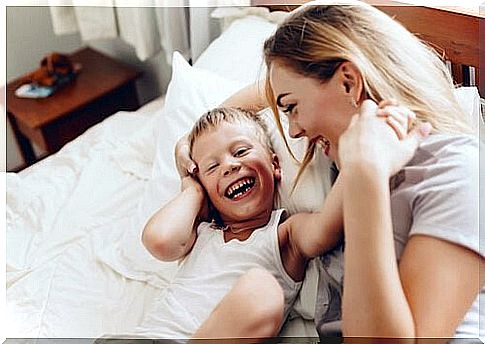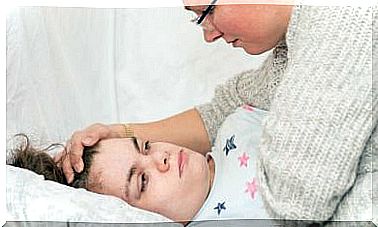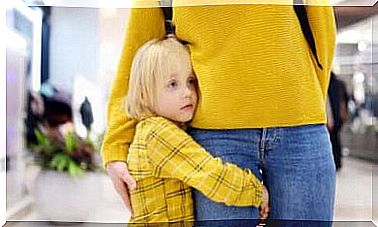5 Tips For Stress-free Childhood

Babies are not born with a manual. It’s a shame, because every phase of their development brings with it certain uncertainties for parents. Find out how having a stress-free childhood can help you avoid major problems.
In recent years we have found that children are more stressed during their development. This can sometimes influence the formation of their personality and the opinion that children have about themselves.
That is why it is so important to guide and support them as they grow. It will help them have a relaxed childhood. And that’s the key to growing up to be a confident adult capable of taking on the world.
5 effective tips for happy and stress-free childhood
Seeing that your child is a happy child is every parent’s dream. To achieve this, you must first of all clearly understand how a child’s personality is formed by examining the things around him.
Watch how he reacts to his environment as he discovers and learns the world.
Knowing this will help you determine the path that will provide your child with a relaxed childhood. Childhood without stress and full of happiness.
Write down these 5 guidelines for stress-free childhood and choose the one that best suits your situation.
1. Give him protection and be present
From the moment your child is born, your presence, your touch a very effective way of relaxation to create . In other words, your protection and presence help determine your child’s emotional well-being.
Your presence should be accompanied by hugs, kisses and looking at your child… make him feel loved.
Love and affection trigger reactions in the body that help to reduce stress. They also contribute to a general sense of well-being.
2. Stimulate him by letting him interact with different people.
A child’s growth must be accompanied by the development of his social relationships. Your child should be able to express their emotions to uncles, aunts, grandparents and siblings.
These interactions allow them to build a protective network. That will help them avoid stressful and frustrating situations.
It will also help him develop resilience, the ability to deal with adversity without suffering too much from its consequences.

3. Teach him to set boundaries
Teaching your child to recognize and respect boundaries is one of the best tips that can contribute to a stress-free childhood.
If your child knows how far he can go, what his strengths are and recognizes his own fatigue in time, this will prevent a lot of irritation, nervousness and frustration.
To learn how to handle situations when something cannot be achieved, you can teach him relaxation techniques. Here are some examples:
- Take a nice, warm shower.
- To music l uisteren , writing, reading, watching TV, drawing, dancing, …
- Run, walk or cycle a bit.
- A walk around the block with the dog.
By giving him the tools he needs to relax, we help him properly channel the frustrations that come with everyday life.
4. Be Empathetic, Compassionate
One of the first things we forget as parents is that we were once children ourselves. To promote a relaxing childhood, it is important that all those around the child understand what it feels like to be a child.
We must learn to see things from their point of view. This means that we should not ignore their achievements, frustrations and discoveries.
If you don’t stand next to your child, he will begin to see his problems as unimportant. This is especially important for people from whom the child expects approval and support.

5. Avoid Being Overprotective
Children who are overprotected do not develop autonomy. They also find it difficult to show their achievements.
Therefore, we must stimulate their capabilities by establishing certain standards and reasonable rules. All this with a certain flexibility.
If we adopt this attitude, the child will grow up as a confident and optimistic human child. He will see problems as challenges from which he can learn to become a better people.
The effects of stress in children
If you don’t provide an environment for a relaxing and stress-free childhood, children with high levels of stress can result. The consequences of this stress are as follows:
- Psychological and neurological disorders.
- Higher risk of frequent anxiety. This can lead to drug abuse and illnesses such as schizophrenia.
- Development of diseases such as obesity, hypertension, diabetes, respiratory diseases and autoimmune diseases.
In short, a relaxed childhood contributes greatly to the formation of happy adults. Also try to have a stress-free pregnancy as that serves the same purpose.
Avoid stressful situations and live a quiet life with plenty of exercise.
Let your child participate in your activities as well. Hug him daily and tell him how much you love him. Give him confidence and stress-free childhood. He will be the happiest child in the world.









